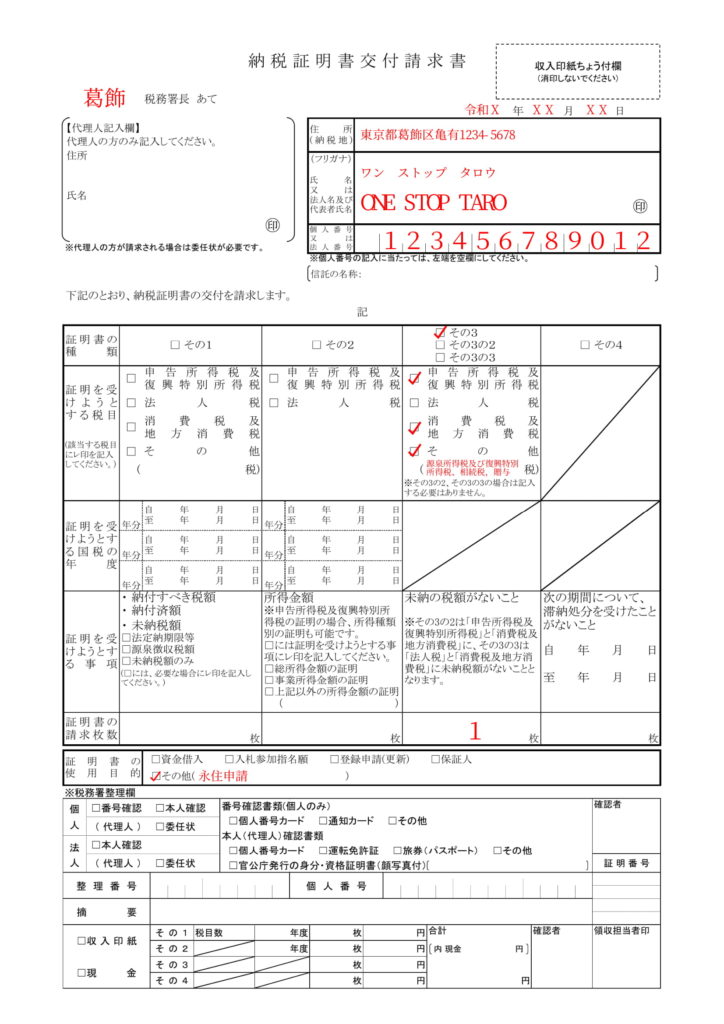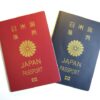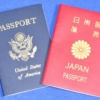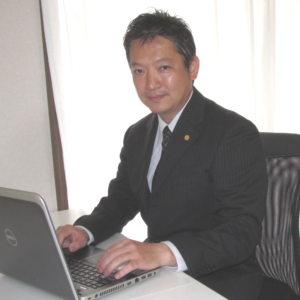Application for Permanent Residence: It has become significantly more difficult to apply for ‘Permanent Resident’.

Since July 2019, it has become significantly more difficult to apply for Permanent Residence. This is believed to be due to the introduction of the “specified skills" visa system in April 2019 to address the urgent labor shortage. To address the situation, the Japanese government introduced the “specified skills" visa, which allows foreign workers to work in a wider range of fields than before. However, due to opposition from many people, the immigration administration has become stricter. As a result, the screening process for Permanent Residence application has become more stringent. The notable changes are as follows:
- Submission of proof of income and tax payment, such as tax certificates or income statements, is now required for five years instead of three.
- Submission of not only the resident tax but also the national tax payment certificate is required.
- Joining the pension scheme is now required.
Requiring pension enrollment seems obvious, and it’s strange that it wasn’t required before. In any case, applying for Permanent Residence has become significantly more difficult than before, so it is necessary to create documents with great care.
- 1. Requirements for Permanent Residence have become stricter
- 1.1. Requirements for Permanent Residence 1: Good conduct (“Good conduct requirement")
- 1.2. Requirements for Permanent Residence 2: Continuous residence in Japan for 10 years or more, “National Interest Requirement"
- 1.3. Requirements for Permanent Residence 3: Having resided in Japan for at least 3 years
- 1.4. Requirements for Permanent Residence 4: Fulfilling the obligations of notification, etc. prescribed in the Immigration Control and Refugee Recognition Act
- 1.5. Requirements for Permanent Residence 5: “Financially Independent Requirement" with a certain income or assets.
- 1.6. Requirements for Permanent Residence 6: Paying all taxes (national and local): Paying all taxes (national and local)
- 1.7. Requirements for Permanent Residence 7: Have paid health insurance premiums for the past 2 years
- 1.8. Requirements for Permanent Residence 7: Have been enrolled in a pension plan and paid for more than 2 years.
- 2. Required documents for permanent residence application
Requirements for Permanent Residence have become stricter
The requirements for Permanent Residence include both legal and practical requirements, but explaining them separately can make it more confusing. Therefore, we will explain them together.
- Good conduct (“Good Conduct Requirement")
- Generally, having resided in Japan for 10 years or more, and among them, having continuously resided for 5 years or more with a work or residential status (“National Interest Requirement"). There are various exceptions to this.
- Having a period of stay of 3 years or more
- Fulfilling obligations such as reporting under the Immigration Control and Refugee Recognition Act
- Having a certain income or assets (“Self-Sufficient Requirement")
- Paying all taxes (national and local)
- Paying health insurance premiums for two years or more
- Joining the pension system and paying for two years or more
Let’s take a closer look at each requirement below.
Requirements for Permanent Residence 1: Good conduct (“Good conduct requirement")
“Good conduct" means living a life that does not violate the law and is not socially condemned in daily life as a resident. Specifically, it means not falling under the following three categories:
- Those who have been sentenced to imprisonment, detention, or a fine for violating Japanese laws.
- Those who are under protective disposition according to the Juvenile Law.
- Those who have special circumstances that are not considered good conduct, such as repeatedly committing illegal or disorderly acts in daily or social life.
Regarding 1, for example, it applies to those who have been arrested and found guilty in a criminal trial. Minor problems, such as being detained overnight by the police for a minor offense, do not apply to this. However, such minor troubles can fall under 3, if they are repeated.
In other words, 1 applies to relatively major crimes, such as being found guilty in a criminal trial, and 3 applies to those who cause minor troubles (traffic violations, shoplifting, fighting, etc.) repeatedly.
Also, even those who fall under 1 are not permanently classified as such, and if certain conditions are met after a certain period of time, they will no longer fall under 1 as follows:
- If the sentence is suspended, five years after the end of the probationary period
- Ten years after the end of the execution of a sentence of imprisonment or more
- Ten years after the execution of a sentence of imprisonment or more has been exempted and the punishment is not a fine or more
- Five years after the end of the execution of a sentence of a fine or less
- Five years after the exemption from the execution of a sentence of a fine or less and the punishment is not a fine or more
- Two years have passed after the imposition of a sentence exemption and the sentence is not a fine or more.
Regarding 3, here are some examples:
- Repeated traffic violations
- Serious traffic violations (drunk driving, driving without a license, speeding violations over 20 km/h)
- Repeated shoplifting
- People with a “family stay" visa working more than 28 hours per week
Especially for people with a “Dependent" visa, caution is required. Even if only one family member apply for permanent residency, it may be more suspicious and may be required to submit a tax certificate.
Requirements for Permanent Residence 2: Continuous residence in Japan for 10 years or more, “National Interest Requirement"
Some may wonder why living in Japan for 10 years or more is considered a “national interest requirement," but when applying for permanent residence, it is generally required to have lived in Japan for 10 years or more continuously. In addition, within these 10 years, you must have been continuously resident for 5 years or more with a work or residential status.
“Continuously resident" may be difficult to understand, but in general, it means that you have lived in Japan without any interruptions in your residence status and without leaving Japan for long or frequent periods of time.
You are no longer considered “continuously resident" in the following cases:
- You left Japan without obtaining a re-entry permit and lost your residence status.
- Your period of residence expired while you were outside Japan.
- You left Japan for more than 3 months at a time.
- You left Japan multiple times for a total of 4 months or more in a year.
In such cases, your continuous residence period is cleared to zero, and you will no longer be able to apply for permanent residence until you have been resident in Japan for another 10 years.
Now, about the meaning of “5 years or more with a work or residential status," it is not enough to simply live in Japan for 10 years. Even if you have lived in Japan for more than 10 years, you cannot apply for permanent residence with only a visa such as “dependent" or “student."
A work status refers to a work visa, which is easy to understand, but a residential status refers to a residence status such as “spouse of a Japanese national," “spouse of a permanent resident," and “long-term resident."
For example, if you stay in Japan for 5 years with a “dependent" visa and then stay for another 5 years with a “engineer," “humanities," “international services" visa, you can apply for permanent residence.
Special cases for being eligible for permanent residence even if you haven’t been continuously residing in Japan for 10 years
Special cases for being eligible for permanent residence even if you haven’t been continuously residing in Japan for 10 years exist depending on the type of residency status you hold or your situation. Here are some representative examples:
- Spouses of Japanese citizens, permanent residents, or special permanent residents: if you have been married and residing in Japan for at least 1 year continuously, and have been residing in Japan for at least 3 years, you can apply for permanent residence.
- Holders of the “long-term resident" visa: if you have been residing in Japan for at least 5 years continuously, you can apply for permanent residence.
- Recognized refugees: if you have been residing in Japan for at least 5 years continuously after receiving recognition as a refugee, you can apply for permanent residence.
- People who have scored 70 or more points as “highly skilled professionals" and have been residing in Japan for at least 3 years continuously can apply for permanent residence.
- People who have been residing in Japan for at least 3 years continuously and have scored 70 or more points as “highly skilled professionals" for at least 3 years can apply for permanent residence, even if they are not currently a “highly skilled professional."
- People who have scored 80 or more points as “highly skilled professionals" and have been residing in Japan for at least 1 year continuously can apply for permanent residence.
- People who have been residing in Japan for at least 1 year continuously and have scored 70 or more points as “highly skilled professionals" for at least 1 year can apply for permanent residence, even if they are not currently a “highly skilled professional."
- People who have contributed to Japan in the fields of diplomacy, society, economy, culture, etc., and have been residing in Japan for at least 5 years continuously.
Requirements for Permanent Residence 3: Having resided in Japan for at least 3 years
The legal requirement is to “have resided with the longest period of stay prescribed in the appendix 2 of the Immigration Control and Refugee Recognition Act Enforcement Regulations for the current residence status held." The current longest period of stay is 5 years, but for now, having resided in Japan for at least 3 years is sufficient to apply for permanent residence.
Requirements for Permanent Residence 4: Fulfilling the obligations of notification, etc. prescribed in the Immigration Control and Refugee Recognition Act
Recently, the enforcement of this requirement has become stricter. Below are some examples of the “obligations to report" specified in the Immigration Control and Refugee Recognition Act. If you have not made a report, it is recommended to do so as soon as possible.
-
Reporting procedures for activity agencies (for those who have visas for professors, highly skilled professionals, management, legal and accounting services, medical services, education, corporate transfers, skills training, study abroad or training): Those who have a resident status in Japan related to the above activities must report any changes in the name or location of the activity agency, as well as any disappearance or departure/transfer from the activity agency to the Minister of Justice within 14 days by following the procedures specified by the Ministry of Justice. For details on the necessary documents, please refer to the link on the Ministry of Justice website.
-
Reporting procedures for contract agencies (for those who work in companies): Those who have a resident status in Japan related to activities such as research, technical and cultural knowledge, international business, nursing care, or entertainment (limited to activities based on contracts with public and private institutions in Japan) must report any changes in the name or location of the contract agency, as well as any disappearance or end/new contract with the contract agency to the Minister of Justice within 14 days by following the procedures specified by the Ministry of Justice. For details on the necessary documents, please refer to the link on the Ministry of Justice website.
-
Reporting procedures for spouses (for those who have a marriage visa): Those who have a resident status in Japan as a spouse with a visa for “Dependent", “Spouse of Japanese national or Permanent resident" must report any divorce or death of the spouse within 14 days to the Minister of Justice by following the procedures specified by the Ministry of Justice. For details on the necessary documents, please refer to the link on the Ministry of Justice website.
Requirements for Permanent Residence 5: “Financially Independent Requirement" with a certain income or assets.
The “Financially Independent Requirement" means that “the person is not a burden to the public in their daily life and can expect a stable life in the future based on their occupation or assets." Generally, an annual income of at least 3 million yen is recommended, but in practice, this is almost always sufficient. The required amount of assets cannot be determined simply and must be calculated on a case-by-case basis.
An annual income of 3 million yen is a rough estimate for a single person. If you have a spouse and/or children, you will need more income. Roughly 500,000 yen of income is needed for each additional family member, which means that for a couple, the required income would be at least 3.5 million yen per year. If you have two children, you will need an additional 1 million yen, making the required annual income 4.5 million yen or more.
However, this can also be calculated based on household income, and your spouse’s income can be added to the calculation, but only if you have been married for more than three years.
Some people also include their parents or siblings as dependents for tax purposes, but be aware that these dependents will also be counted as family members for the purpose of calculating the required income. If you simply include dependents for tax purposes to save money, it will be seen negatively.
Since July 2019, a certificate of income (such as a tax certificate) for the past 5 years has been required instead of 3 years. Although it is not clear whether an annual income of at least 3 million yen is still sufficient, it is generally considered to be enough if it has been sustained for at least 3 years. However, if the trend is decreasing, it is important to explain the reasons for the decrease and future prospects in detail.
Requirements for Permanent Residence 6: Paying all taxes (national and local): Paying all taxes (national and local)
The requirements for tax payments have become stricter. A tax payment certificate for local taxes must be submitted for five years, in addition to a certificate for national taxes.
You may have obtained a tax payment certificate for resident tax at the city or ward office before, but for the national tax payment certificate, you need to go to the relevant tax office.
There are different types of national tax payment certificates, but please obtain a certificate for “withholding income tax and special income tax for reconstruction, declaration income tax and special income tax for reconstruction, consumption tax and local consumption tax, inheritance tax, and gift tax (No. 3)"「源泉所得税及び復興特別所得税,申告所得税及び復興特別所得税,消費税及び地方消費税,相続税,贈与税に係る納税証明書(その3)」.
Please fill out the tax payment certificate application form, which is provided as a sample.

Requirements for Permanent Residence 7: Have paid health insurance premiums for the past 2 years
The payment status of public medical insurance (either National Health Insurance or Employee Health Insurance) is being strictly reviewed in recent permanent residency applications.
For those who are enrolled in Employee Health Insurance, there are few problems as long as the company is properly paying the premiums. However, for those enrolled in National Health Insurance, there is a higher risk of forgetting or being late with payments, so caution is advised.
Regarding National Health Insurance, documentation is required to prove payment status for the past 2 years, including a copy of receipts as well as the National Health Insurance premium payment certificate. This means that simply paying all premiums is not enough, and late payments are not acceptable.
To avoid forgetting National Health Insurance payments, it is recommended to set up automatic bank withdrawals.
Requirements for Permanent Residence 7: Have been enrolled in a pension plan and paid for more than 2 years.
Payment of pension contributions was not previously a requirement for permanent residence, but it became a requirement from July 2019.
For those who are employed, if their company has enrolled in the employees’ pension system, there should be no problem. However, not being enrolled in any public pension system or being enrolled in the National Pension System but not paying the insurance premiums can be problematic.
Payments for the National Pension System can be made with a credit card, so those who have a credit card should opt for credit card payments.
Required documents for permanent residence application
The number of documents required for permanent residence application has significantly increased due to the stricter requirements. The typical documents include:
- Application form for permanent residence
- Passport and residence card
- Photo (H4cm x W3cm)
- Documents to prove relationship status depending on the situation of the applicant. For example, if the applicant is the spouse of a Japanese citizen, a copy of the spouse’s family register is required.
- Residence certificates for all family members without a My Number.
- Documents to prove occupation for the applicant or the supporter, such as a certificate of employment for employees, a copy of the tax return for self-employed persons, and a certificate of all matters of the company for company managers.
- A tax certificate for municipal tax for the applicant or the supporter (5 years, 3 years for spouses of Japanese or permanent residents).
- A tax payment certificate for municipal tax for the applicant or the supporter (5 years, 3 years for spouses of Japanese or permanent residents).
- A tax certificate for national tax: A certificate of payment for income tax, consumption tax, local consumption tax, inheritance tax, and gift tax (No. 3).
- Other documents to prove income and assets, such as a copy of the bankbook for savings deposits.
- Documents to prove payment status for public pension insurance for the past two years: either the “Nenkin Teiki Bin” or printouts of the “Nenkin Net” website for monthly pension records.
- For those enrolled in the national pension, a copy of the national pension insurance fee receipt for the past two years is required (a written explanation is required if they cannot provide this documentation).
- Documents to prove payment status for public health insurance for the past two years, such as a copy of the insurance card or a copy of the certificate of payment for national health insurance premiums (tax) and a copy of the receipt.
- For business owners who apply for social insurance, a copy of the receipt for health insurance and welfare pension insurance fee payment is required, and if not available, a certificate of payment or confirmation of social insurance payment is needed.
- Documents related to the person who guarantees the applicant’s identity, such as a certificate of guarantee, proof of occupation, and a tax certificate for the last year. If the spouse is not the person who guarantees the applicant’s identity, the family register is required.
Note that the documents required may vary depending on the applicant’s situation, so it is recommended to consult with the appropriate authorities for specific requirements.










